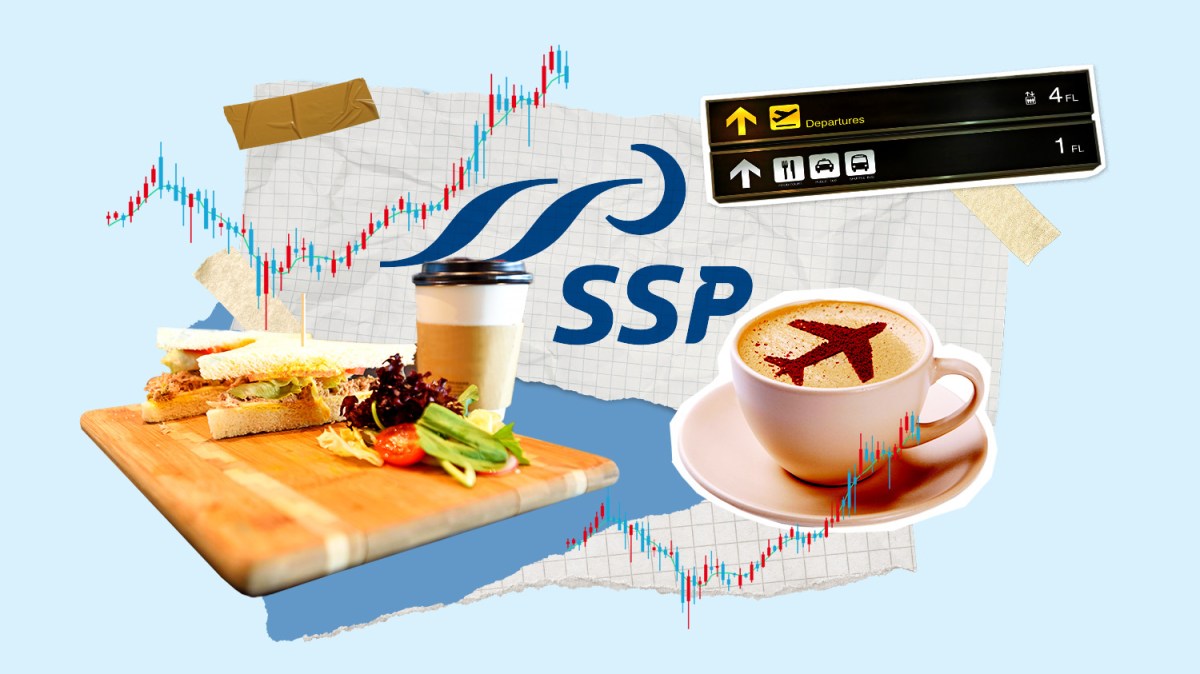A rise in SSP’s share price on Thursday signalled growing investor appetite for change at the transport catering group.
Reports that Irenic Capital Management, an activist investor, is trying to canvass takeover interest from private equity houses, lifted shares in the FTSE 250 company behind Caffè Ritazza and Upper Crust, by 11p, or 7 per cent, to 167p.
Buyout firms would be foolish to ignore SSP, one of numerous London-listed firms trading on cheap valuations. Irenic has had its eye on SSP since May, when it first built a 2 per cent stake in the company.
It is not hard to see why. In its most recent financial year, SSP booked in £343 million in earnings before interest, taxes, depreciation, and amortisation — beating pre-pandemic levels for the first time since the Covid crisis, helped by revenues of £3.43 billion. Further growth this year puts the company on track to deliver revenues within the range of £3.7 billion to £3.8 billion and underlying operating profit of between £230 million and £260 million.
However, the market has not been kind to the business. The shares are still priced well below the pre-pandemic level, with three emergency fundraisings during the crisis partly to blame. SSP’s shares are trading at 11 times forward earnings, close to the lowest multiple since the end of the pandemic.
That does not reflect of the strength of the recovery in sales and the balance sheet, but demonstrates investors’ concerns about the health of the international travel market and persistent challenges in Europe.
The sandwich seller, once part of Compass Group, the contract caterer, listed in London in 2014 at a market capitalisation of £1 billion. It now operates mostly at airports and railway stations in 38 countries, deploying 550 brands in total, including third-party franchises such as Pret A Manger, Burger King and Yo! Sushi.
Though SSP’s competitive advantage means it is well placed to benefit in the longer term, investors have been unable to set aside their nerves.
Trading in continental Europe, the group’s biggest market in terms of sales, has been a struggle, with sales in France and Germany last year behind the board’s expectations. The region made an underlying operating profit of £18 million last year, some way off the £79.5 million recorded in 2019.
As part of a “profit recovery plan” that is under way to address the slowdown in Europe, SSP has streamlined the management structure, reduced costs and optimised the performance of new units in the hope of increasing operating profit margins in the region from 1.5 per cent to 3 per cent this year.
There have been issues outside of Europe, too. In SSP’s third-quarter results, total like-for-like sales were 3 per cent, marking a slowdown from the 5 per cent growth seen in the first six weeks of the period. This reflected a slowdown in passenger numbers in North America and the short-term impact from the cyberattack that hit Marks & Spencer in the UK.
There are brighter spots thanks to SSP’s gradual pivot towards faster-growing markets. The standout performer, regionally, in the third quarter was Asia Pacific, eastern Europe and the Middle East, with like-for-like sales up 9 per cent. Still, sales were susceptible to rising geopolitical tensions and air safety incidents near the end of the period.
The successful spin-out of its Travel Food Services (TFS), its Indian joint venture, in July, will provide SSP with a decent cash boost. Patrick Coveney, SSP’s chief executive, hoped the listing would ascribe more value to the joint venture business, and ultimately help the overall valuation of SSP.
TFS, which only operates about 500 units in India, while SSP operates more than 3,000 units, is valued at 177 billion rupees (£1.48 billion), more than SSP’s £1.25 billion market capitalisation. Analysts at Deutsche Numis said the “stark” valuation gap between the two companies “says much about the market’s differing views on the management and strategies in the two entities”.
“For the patient, it demonstrates the underlying re-rating opportunity at SSP,” they said. “If it persists, we expect activists to become more vocal.”
SSP may be a slow burner, but it is a competitive business that has fallen victim to those who cannot see the long-term structural attractions of the global travel market. The shares are cheap, and with or without the presence of activist investors looking to shake up the company, SSP has all the attributes of a takeover target.
Advice: Buy
Why: The shares look cheap given progress made and takeover potential.
